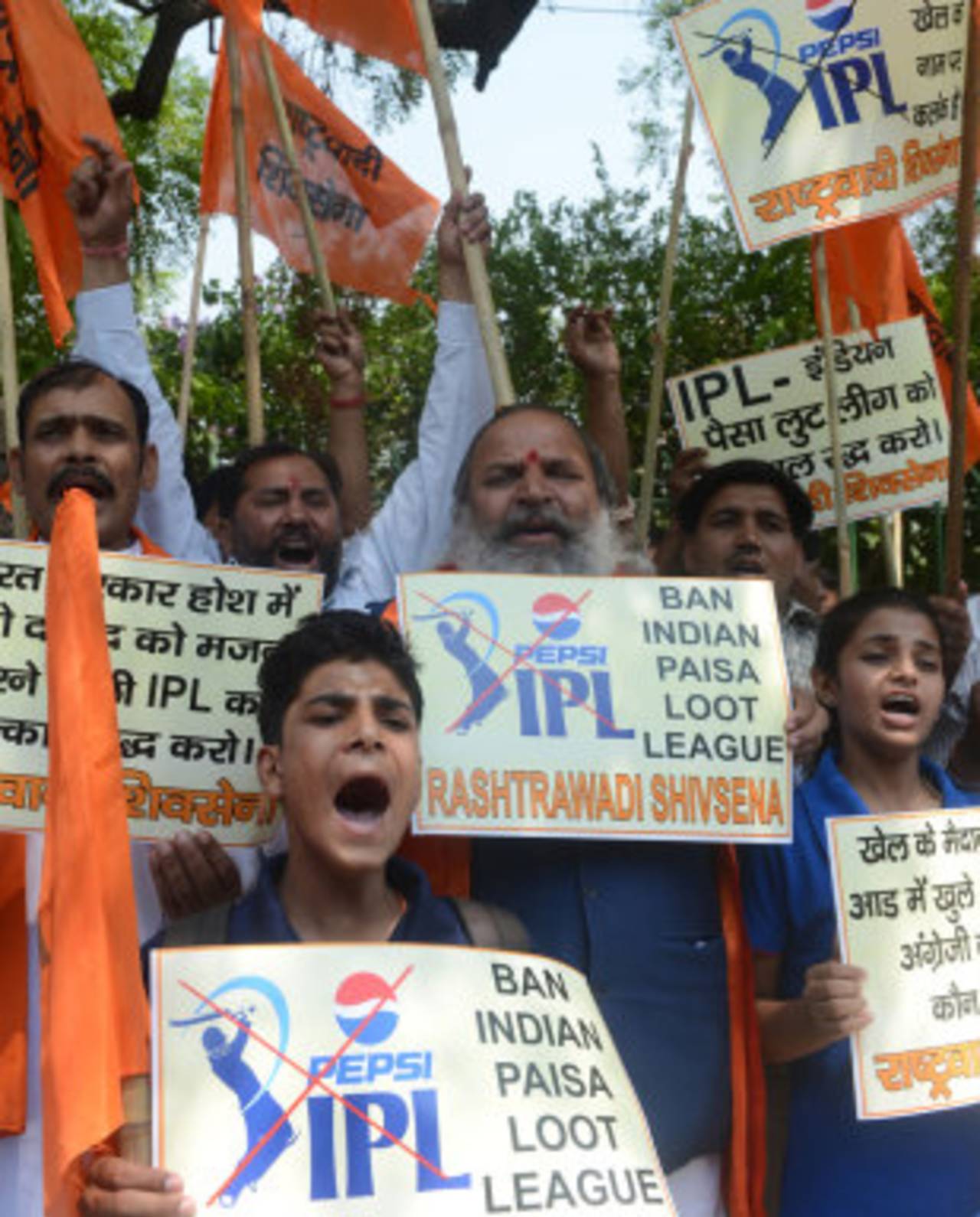The fight against cricket corruption has been long and one-sided. The corruptors have had the heavy artillery. They have won the battles and are winning the war. The men trying to stop them are a fragmented force, including cops in India and the ICC's anti-corruption and security unit, armed only with pop guns.
Sometimes they aim a lucky strike.
Hansie Cronje and
Mohammad Azharuddin were exposed by chance. Since 2000 they have been the two most high-profile casualties, receiving life bans. But they only suffered flesh wounds from the law, whose gaze all men cower from. Cronje and Azharuddin never faced criminal charges.
It is to cricket's eternal regret that neither man was put on trial and judged in the manner of the common man they cheated. It seems barely believable that in India match-fixing is not a crime. It is barely believable that 13 years on from that nadir, it is still not a crime. Pop guns.
And yet there is hope. The decision by the Delhi Police to charge three Rajasthan Royals players embroiled in spot-fixing allegations under the Maharashtra Control of Organised Crime Act (MCOCA) is a game changer. Suddenly the boys in blue have discovered a weapon.
It could be a seminal moment in the war. The reason for that is fear. Bookmakers, corruptors and, most crucially, the players now have something to be afraid of. Not only could they now be scrutinised for flouting the laws that bind society, they could be categorised with mafia dons and murderers. Such pariah status perhaps weighs more heavily than anything the ICC can mete out.
Indeed, the
words of Ajit Chandila, one of the Rajasthan Royals trio, are no doubt echoing around every dressing room in the world: "I am a cricketer not a terrorist."
Rahul Dravid spoke of the need for players to be scared. They should be now. This is shock and awe.
The bookmakers and punters who propagate corruption are also unnerved. The illegal industry in India had already taken a significant hit following the IPL spot-fixing scandal - operating at around only 60% of its capabilities for the tournament's final days - and Delhi's finest have struck another blow by invoking MCOCA.
One well-established bookmaker high up the chain told me this week that he was leaving the industry. "It's too risky now," he said. "I have been on the run for months." Another reckoned that fixing would reduce: "No one new will dream of fixing a match. If they justify that charge then you could be facing a long jail term. There will be some old hands still doing it, but new players thinking of it, new bookmakers or new punters? No way."
A cricketer offered money for a "favour" on the field in India will not so readily agree to manipulate a match. In the past there was little to dissuade him aside from the ethereal, intangible notion of the spirit of the game. Now it is there in black and white on a charge sheet
Getting the MCOCA charges to stick will not be easy. The Delhi police have already been criticised for the heavy-handed approach. The judge who granted bail to the Rajasthan players said, "stringent provisions of MCOCA are prone to be misused by the investigative agency".
Legal arguments will focus on whether the corruption of a sporting contest is organised crime, which is defined by MCOCA as "any continuing unlawful activity by an individual, singly or jointly, either as a member of an organised crime syndicate or on behalf of such syndicate, by use of violence or threat of violence or intimidation or coercion, or other unlawful means, with the objective of gaining pecuniary benefits, or gaining undue economic or other advantage for himself or any other person or promoting insurgency".
The devil will be in the detail. Will the police be able to prove that a group of bookmakers and their players represent an organised crime syndicate? It should not be too difficult to sway a court that they are criminals, because bookmaking is illegal, but the notion they are the same as the infamous D Company and its leader, Dawood Ibrahim, seems fanciful. The IPL spot fix was a scam dreamed up by opportunists, not some criminal overlord.
There is method, however, to a move that has been described as madness. The Delhi police could have invoked Section 108 of the Delhi Police Act, 1978, which clearly prescribes cheating in gambling/betting, or Section 420/415 of the Indian Penal Code (normal charge of cheating). But their chances of success would have been greatly reduced. After all, they have not worked before and were options for the police investigating Azharuddin.
MA Ganapathy, whose name might still send a shiver down Azhar's spine, conducted the interrogations during that case and knows well what it feels like to be in a fist fight with both arms tied behind your back.
Ganapathy says the use of MCOCA may be "overkill" but he does not dismiss the psychological impact. "It is a big moment and people will now think twice. Maybe that was not the case before. That should not be underestimated."
Quite. From even the smallest seed great doubts can grow. A cricketer offered money for a "favour" on the field in India will not so readily agree to manipulate a match. In the past there was little to dissuade him aside from the ethereal, intangible notion of the spirit of the game. Now it is there in black and white on a charge sheet. Fixers are not terrorists. But they are being treated as such. That beats a pop gun.
Ed Hawkins is the three-time SJA Sports Betting Writer of the Year. He is the author of Bookie Gambler Fixer Spy: A Journey to the Heart of Cricket's Underworld, the 2013 Wisden Book of the Year
